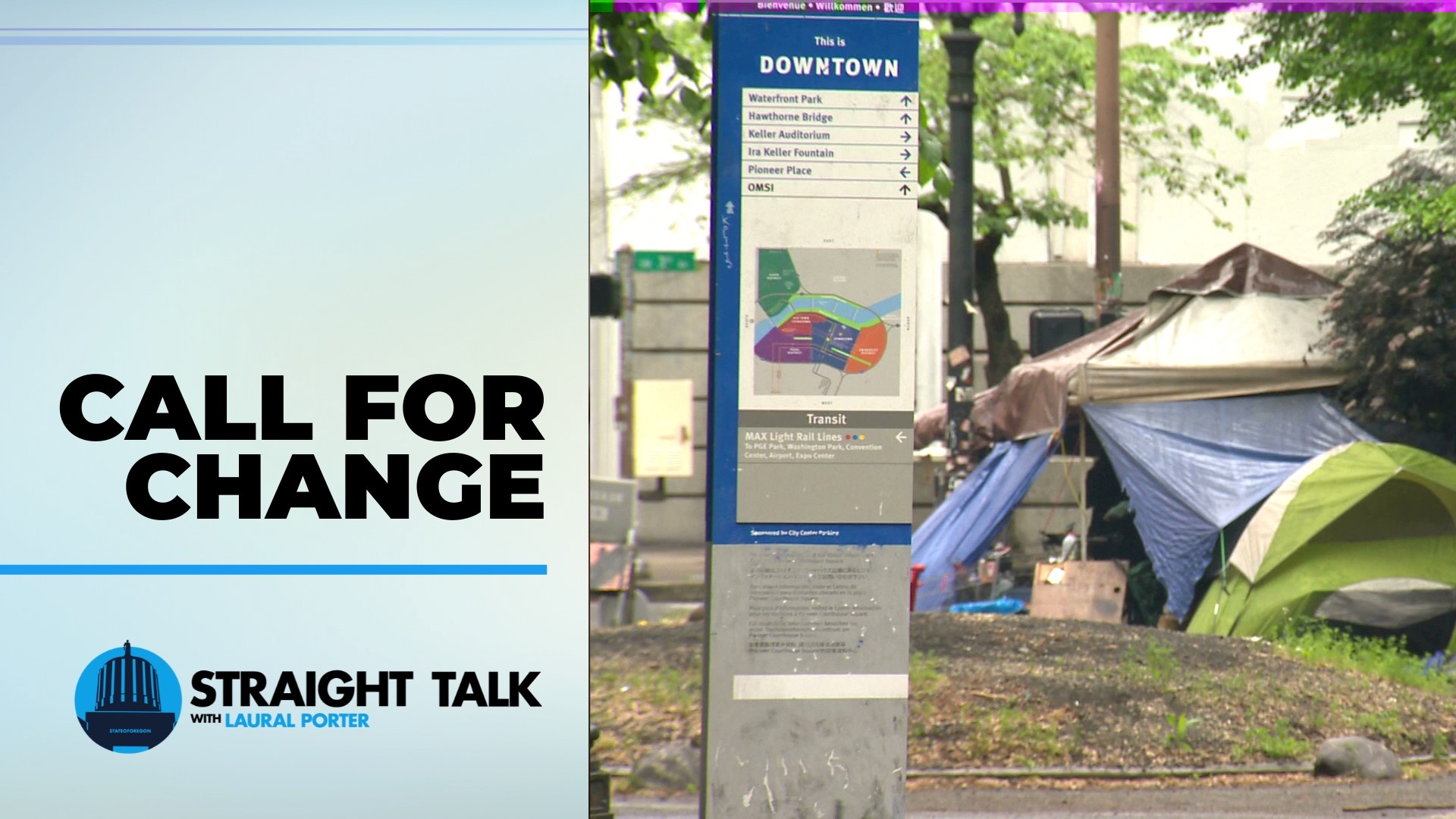PORTLAND, Ore. — The pandemic has been difficult on everyone, but for people living on Portland's streets and for those facing mental health issues and addiction, it has become a humanitarian crisis.
Scott Kerman, the executive director of the nonprofit Blanchet House in Old Town, witnesses the suffering daily.
"What we witnessed in the beginning weeks and months of the pandemic, I think most people would associate with news footage of developing countries that experienced famine, drought, perhaps even war," Kerman said.
For nearly seven decades, the Blanchet House has provided meals and shelter to people experiencing food and housing insecurity.
It also partners with the Mental Health and Addiction Association of Oregon (MHAAO) which provides peer support through people with lived experience of homelessness, mental illness and/or addiction.
Terry Leckron-Myers is the Evolve Director for MHAAO Oregon.
"We have two peers at the Blanchet House who really support the people in line. So, when they are at Blanchet and waiting in line, they are feeling welcomed, wanted and needed," Leckron-Myers said.
Leckron-Myers and Kerman were guests on this week's episode of "Straight Talk" to discuss what's happening on the streets of the Portland metro region and their ideas for addressing the crisis.
Pandemic adds another layer of trauma
Kerman said the pandemic has added another deep layer of trauma to people already traumatized.
"You have to remember for people who are homeless, more often than not, they became homeless because of significant trauma in their lives. And just being homeless is traumatic in itself. And like the interest in your savings account or 401k, the trauma is compounding for them every day," he said.
Then, the ice storm and cold in the winter, the extreme heat in the summer and the wildfire smoke all added to their suffering.
"These are individuals who have been outside for 18 months without much recourse to decent rest, appropriate hygiene or sanitation. Imagine what that does to a person's mental well being, to their struggles with addiction," he said.
To respond to the crisis, the MHAAO increased staffing by 30%. The Blanchet House also added staff, doubling its team members, but it's still not enough. Before the pandemic, it served about a thousand meals a day. After March 17, 2020, it became 2,000 meals a day. Blanchet House also expanded its services to include distributing clothing, hygiene supplies and living essentials to help people survive.

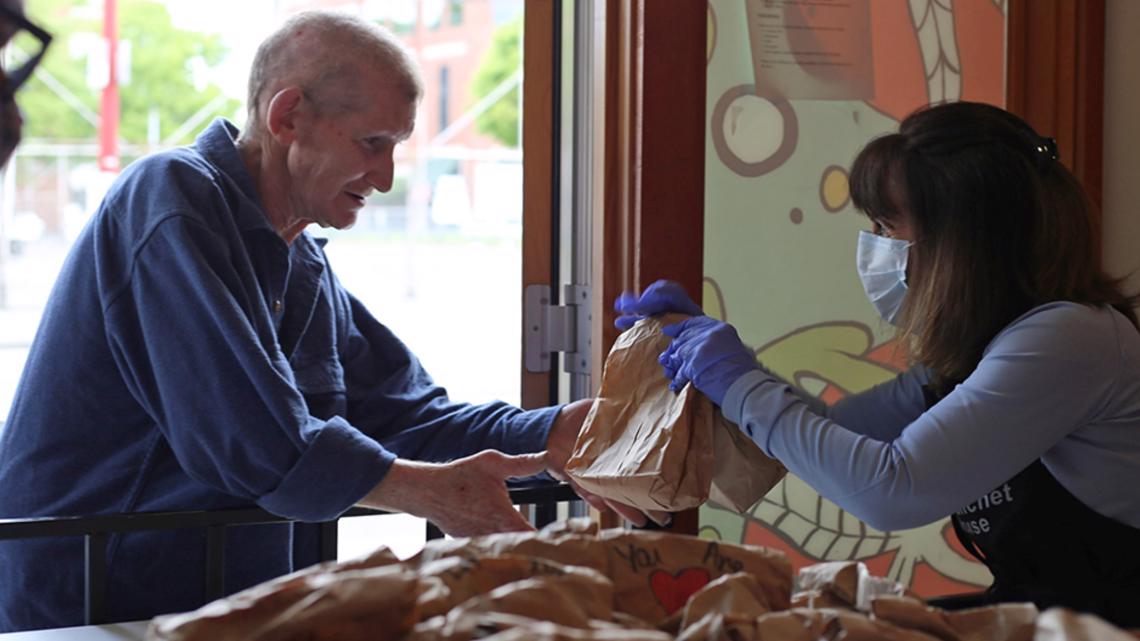
"We are seeing suffering, a lot of really intense psychosis and it's frankly heartbreaking. This is emotionally difficult work we are doing down here. Because the need is too big for us to serve in that moment, it's so extreme right now," Kerman said.
A bold, innovative response
Kerman is calling for a bold, innovative response to the crisis with targeted support for helping people with mental health challenges that have been exacerbated by the pandemic.
"My idea is that the agencies in our Old Town, downtown district share teams of mental health and peer support specialists. We see many of the same clients and guests and we experience, as individual agencies, many of the same people who are in crisis," Kerman said.
Kerman said he is grateful for the peer support MHAAO provides to Blanchet House for guests at lunch and dinner five days a week. It's something he'd like to see replicated at agencies throughout the city.
RELATED: Amid mounting housing crisis, officials say Portland on track to open six 'Safe Rest Villages' this year
"It's amazing to see the relationships built with people who come to us every day and what it's done to enhance their experience with us and to deescalate crisis. Imagine if that existed everywhere and when people went from Blanchet House to another agency for service, they saw the same people," he said.
Terry Leckron-Meyers from MHAAO agrees sharing personnel between agencies would go a long way to better addressing the needs of the area's most vulnerable residents.
"We know peer support and collaboration are key to creating a warm hand off, and to deliver services that are more welcoming. It's about having people build trust," she said.
Kerman said he thinks specialized teams that serve all the various agencies helping people who are homeless would help break down the silos of service. And he says, the agencies are ready and eager to collaborate.
"So that when our clients go from agency to agency they are seeing familiar faces who already know their story and know how to work with them effectively," Kerman said.

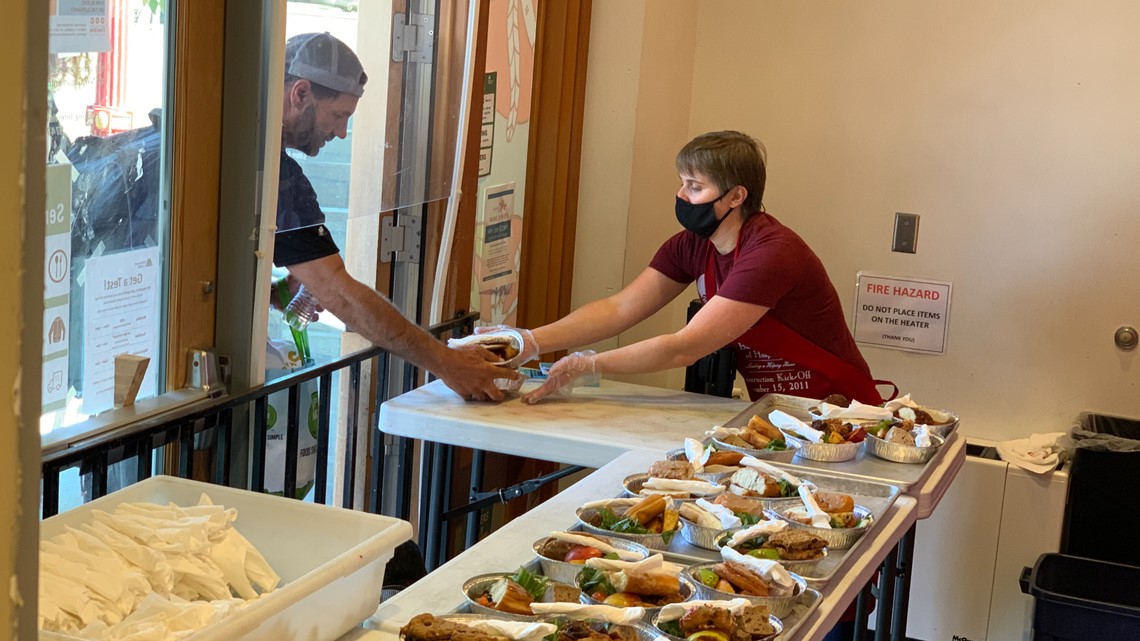
Next Step
Kerman believes sharing services between agencies would be a much more cost effective way to serve their clients and guests. He wants to generate excitement and interest for the program and would like to see resources devoted to it, possibly from COVID-related money. He hopes the state, county, and nonprofit leaders will come together to leverage their existing infrastructure and share their expertise.
As an example, he points to the collaboration between Blanchet House and the Mental Health And Addiction Association of Oregon.
"We are not experts in peer support. It would cost me a lot of money and time to ramp up that expertise. The good news is I don't need to, because I have a partner in MHAAO who are experts in peer support," he said.
He believes all the downtown agencies helping people who are homeless can share their superpowers.
"I think there are a lot of agencies in our district, each with their own super power. And it's time and there is a lot of interest among us to really start to band together," he said.
Blanchet House receives no federal funding and relies on individual donations. Those who would like to support Blanchet House's mission can donate here.

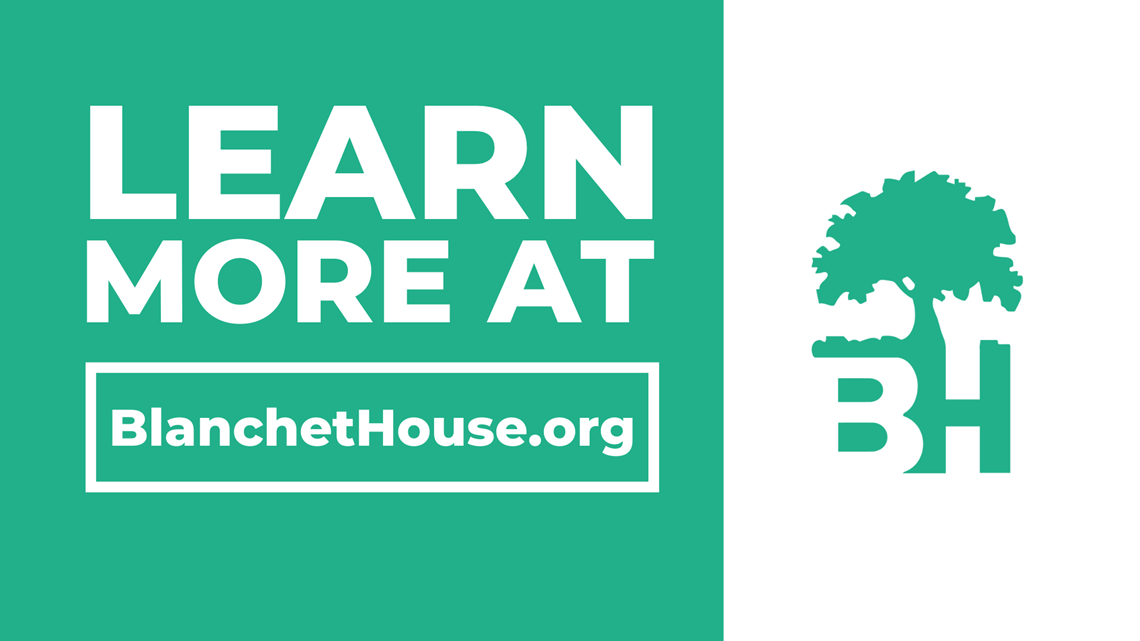
Donate or find out more about the peer-run nonprofit Mental Health and Addiction Association of Oregon here.

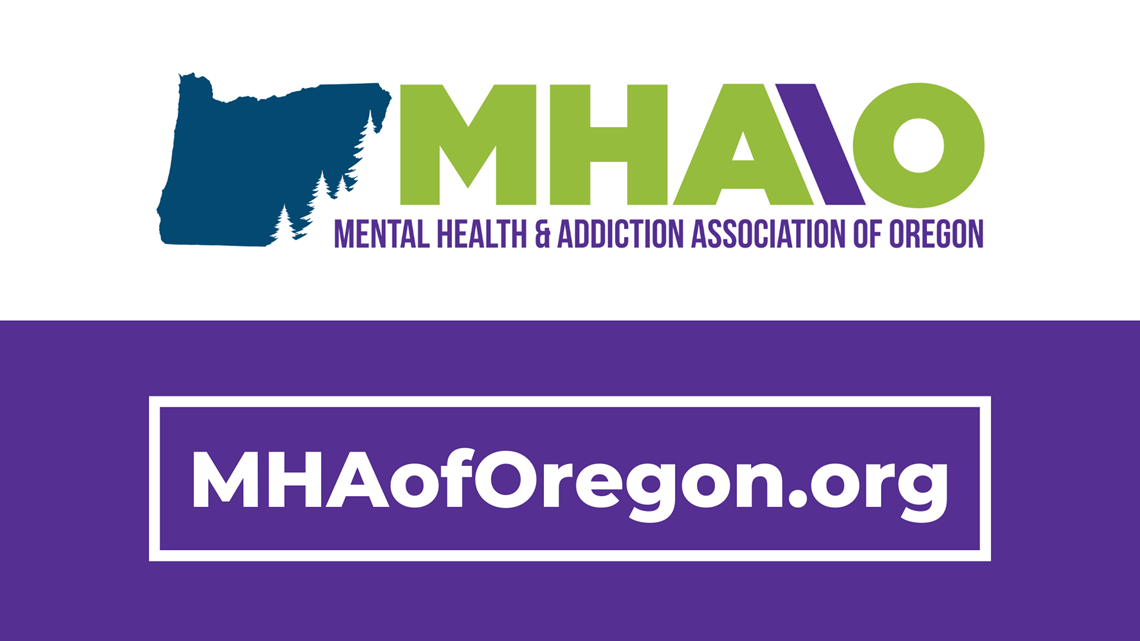
Straight Talk airs Friday at 7pm, Saturday at 6:30pm, and Sunday at 9:30pm.
Straight Talk is also available as a podcast.
Download the latest episode here.

